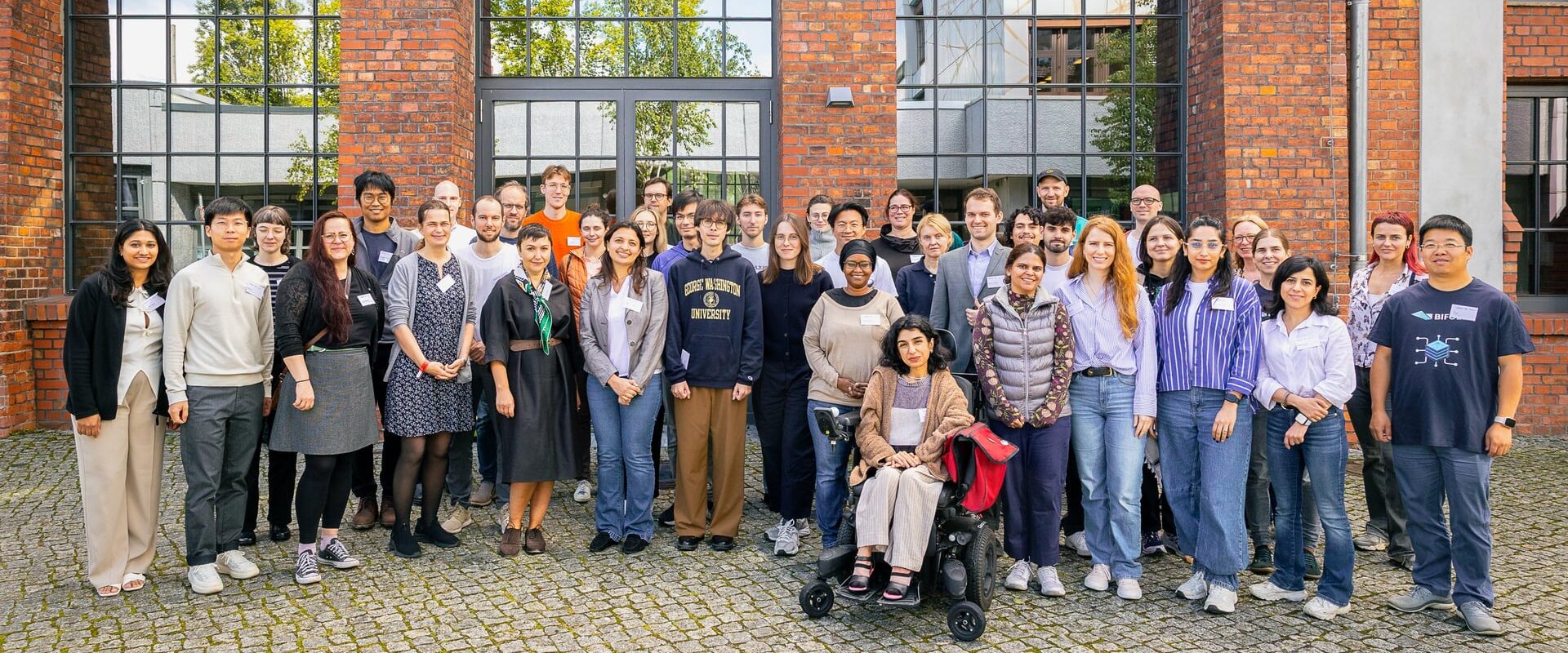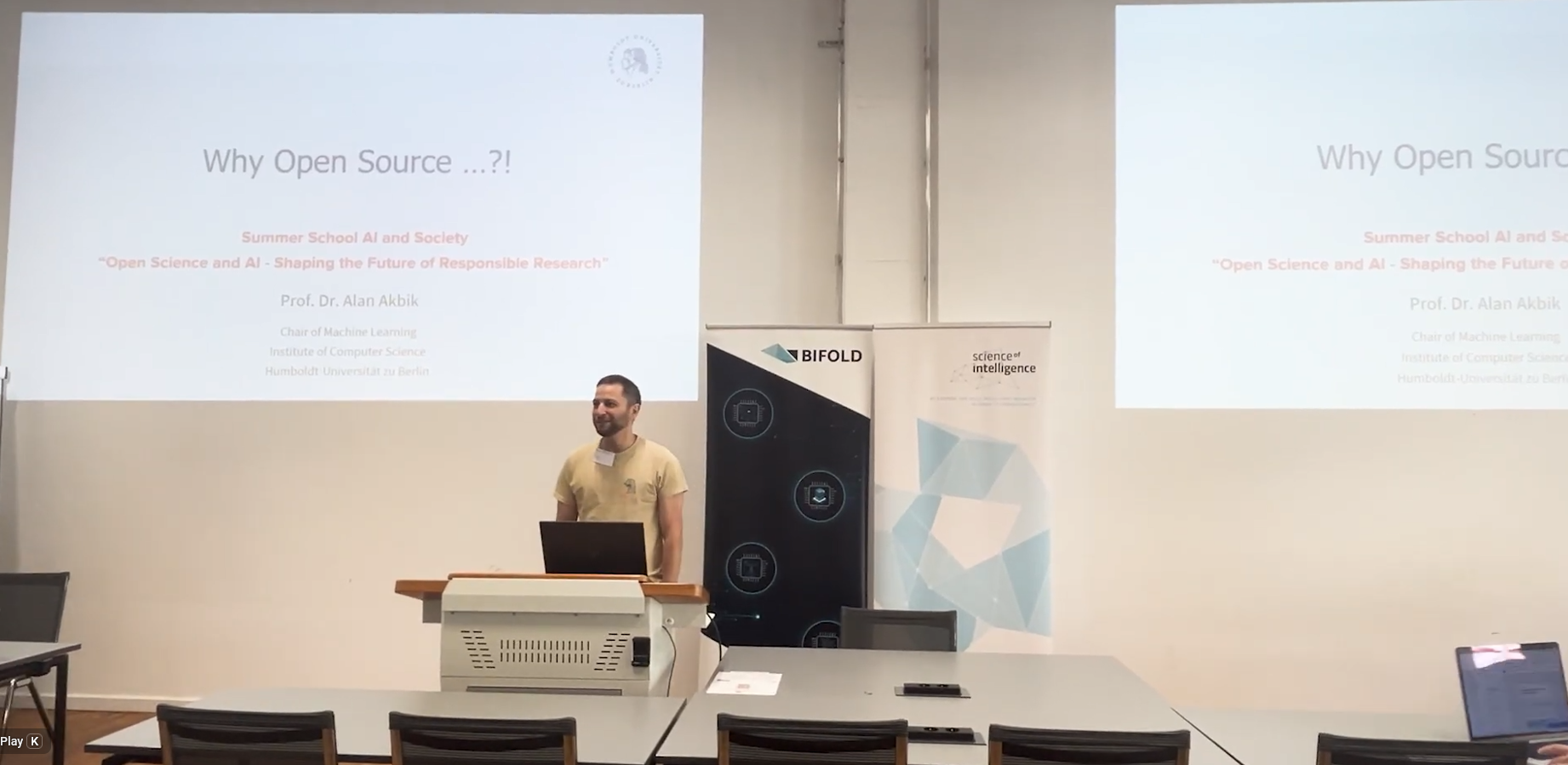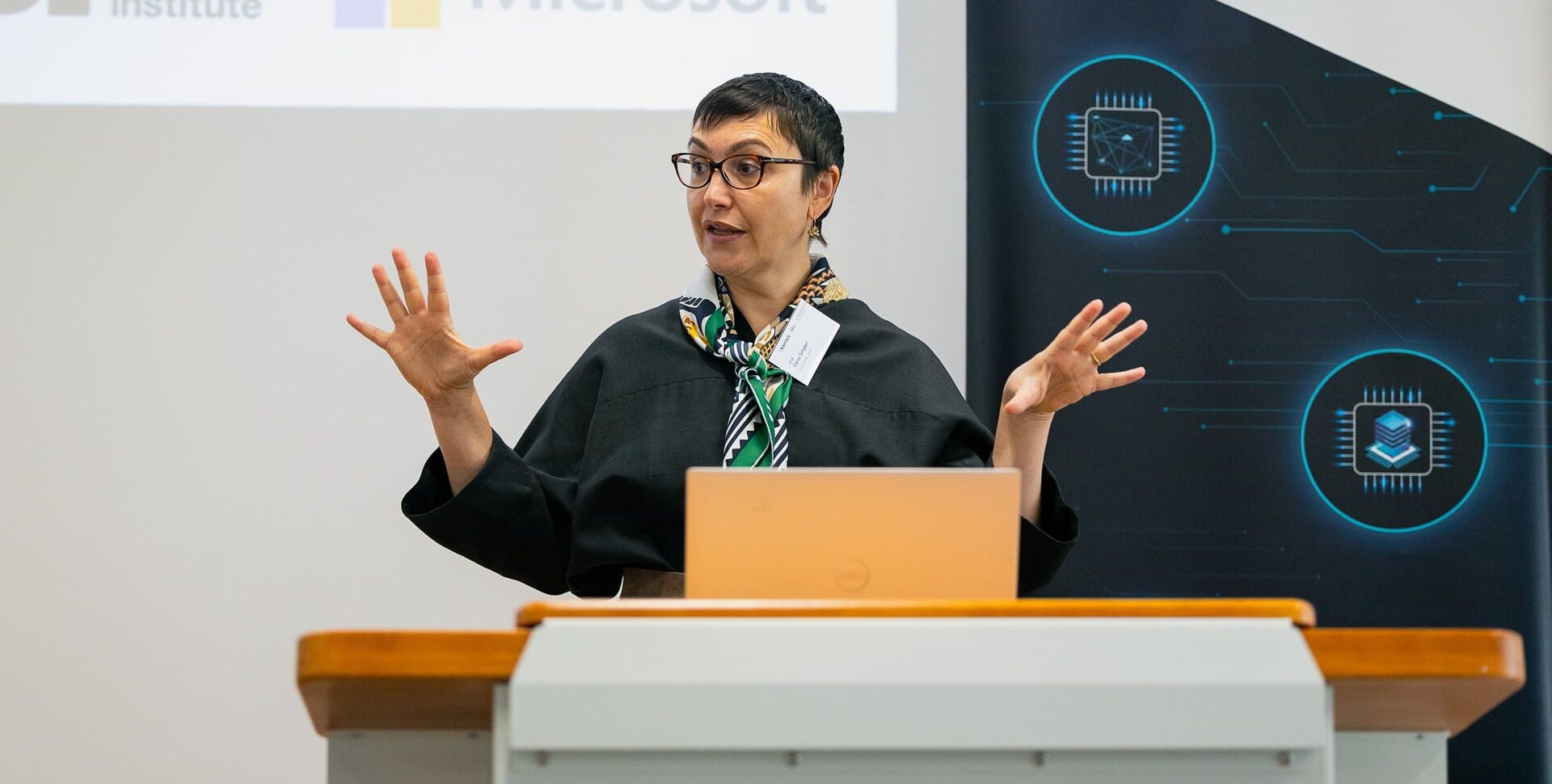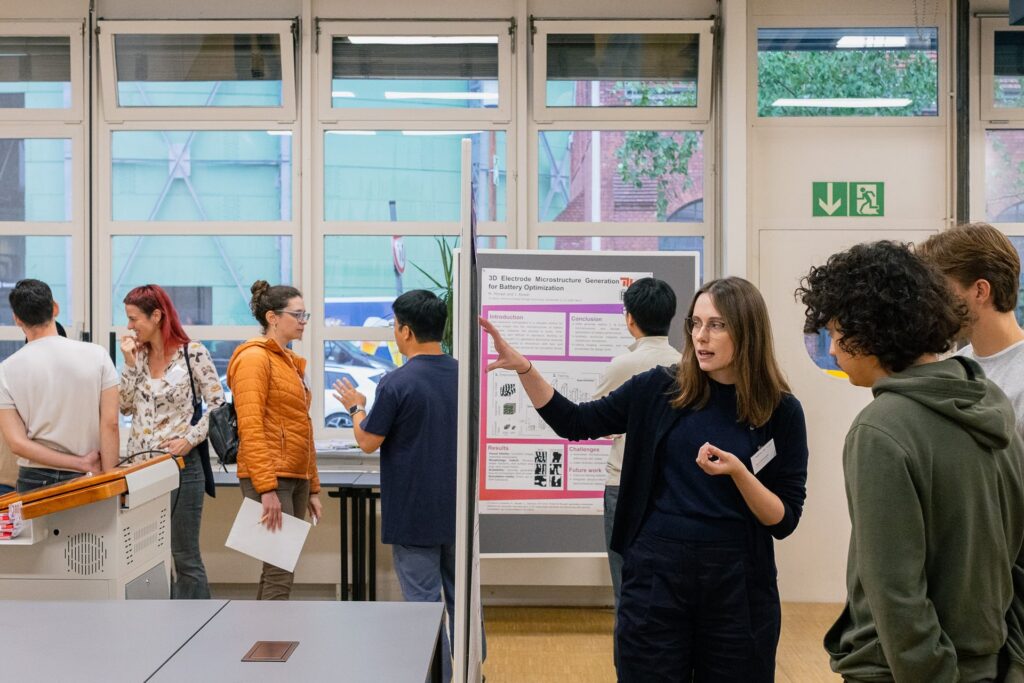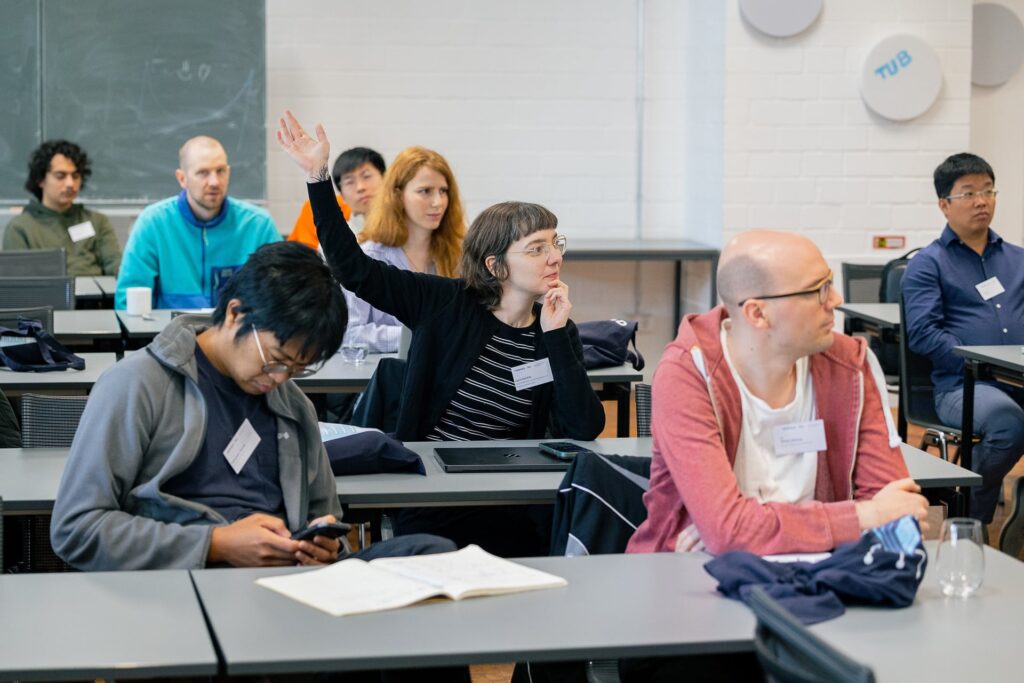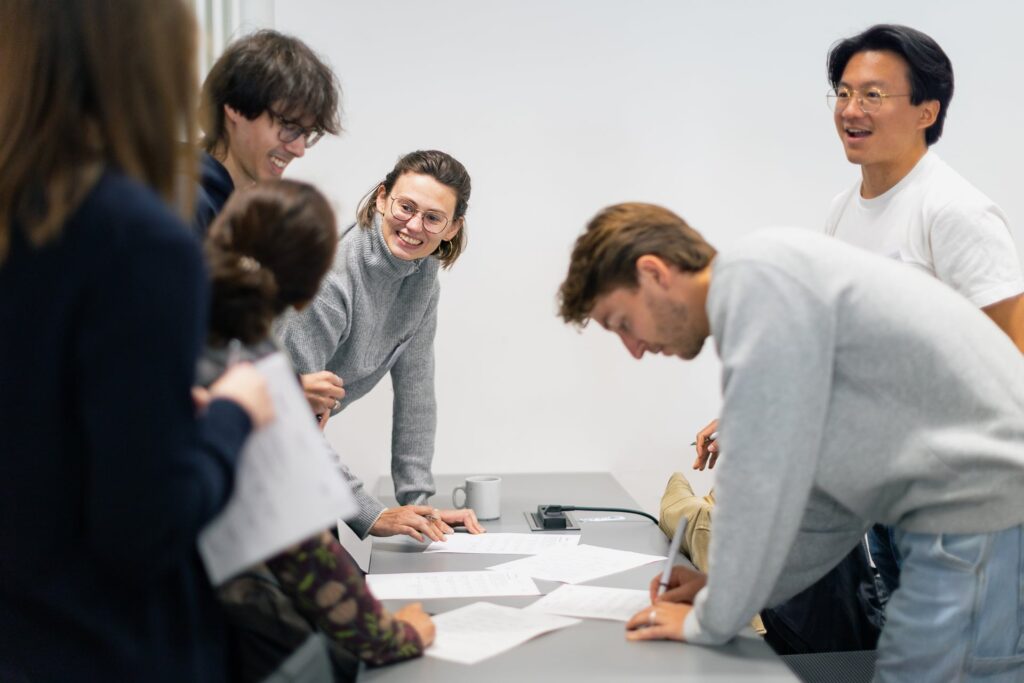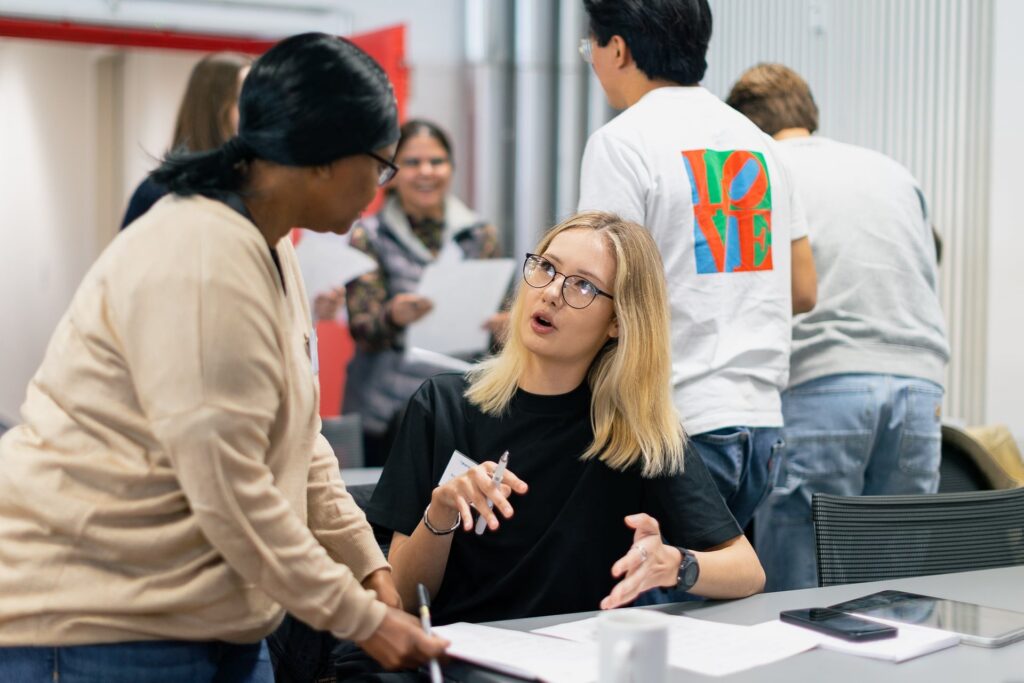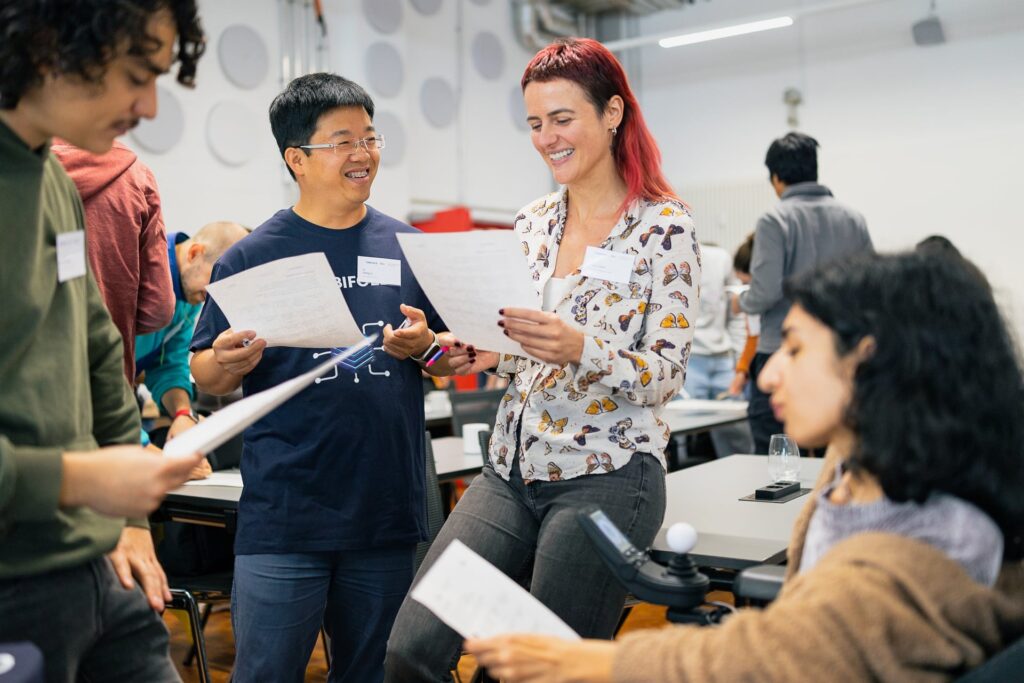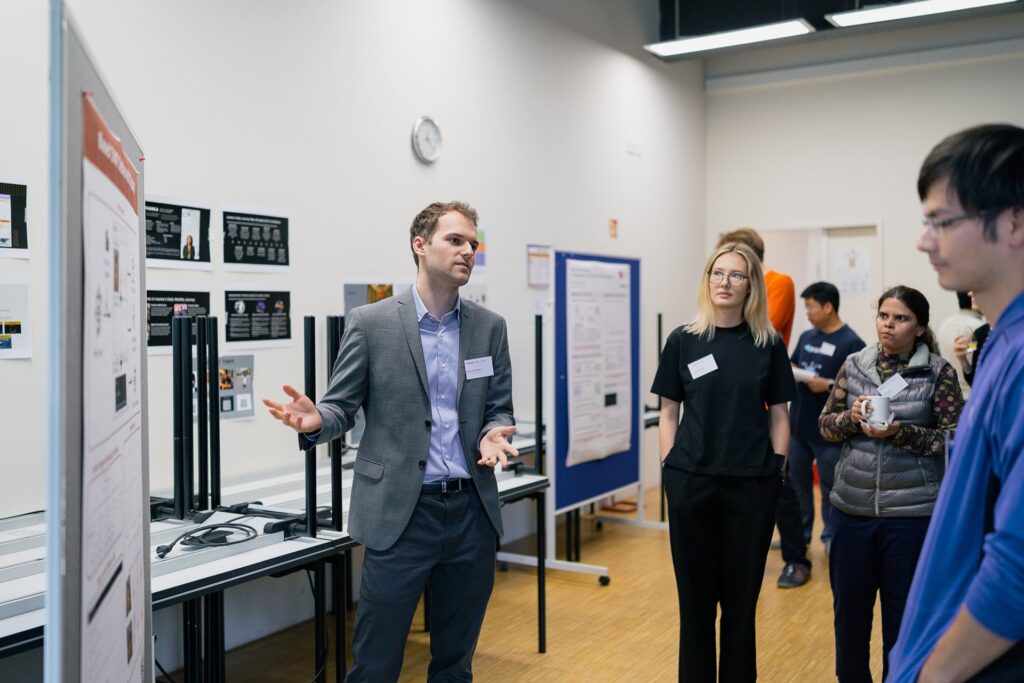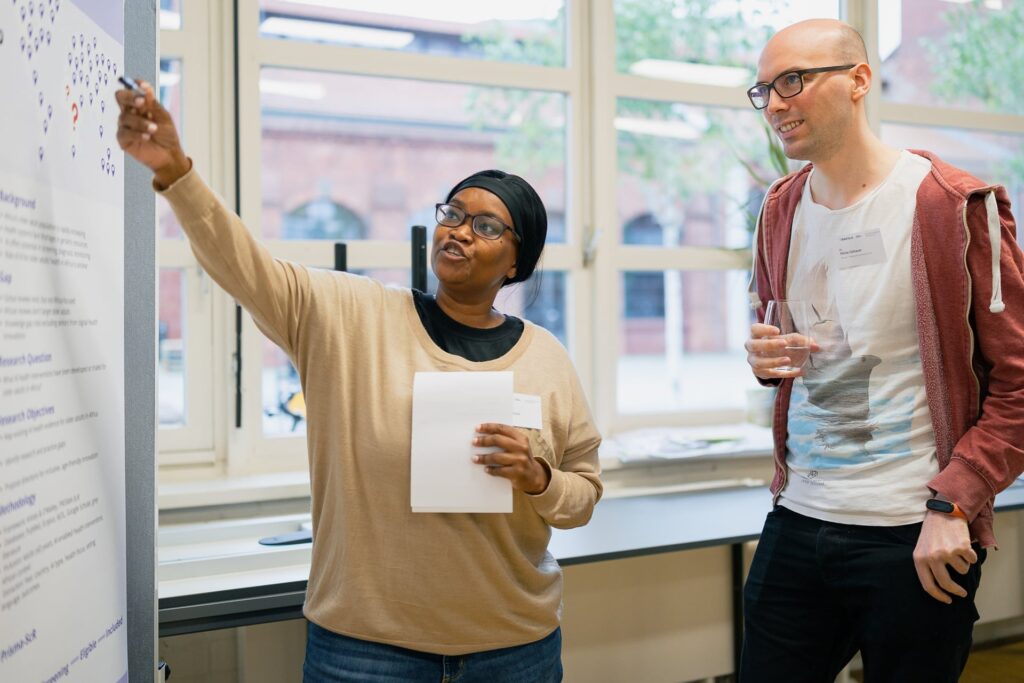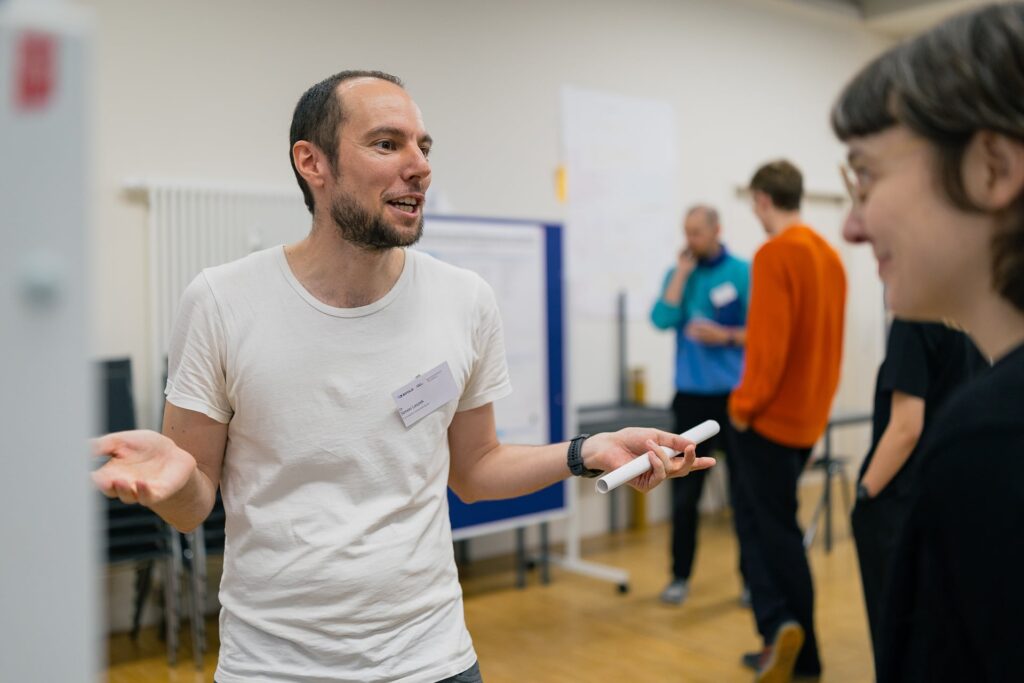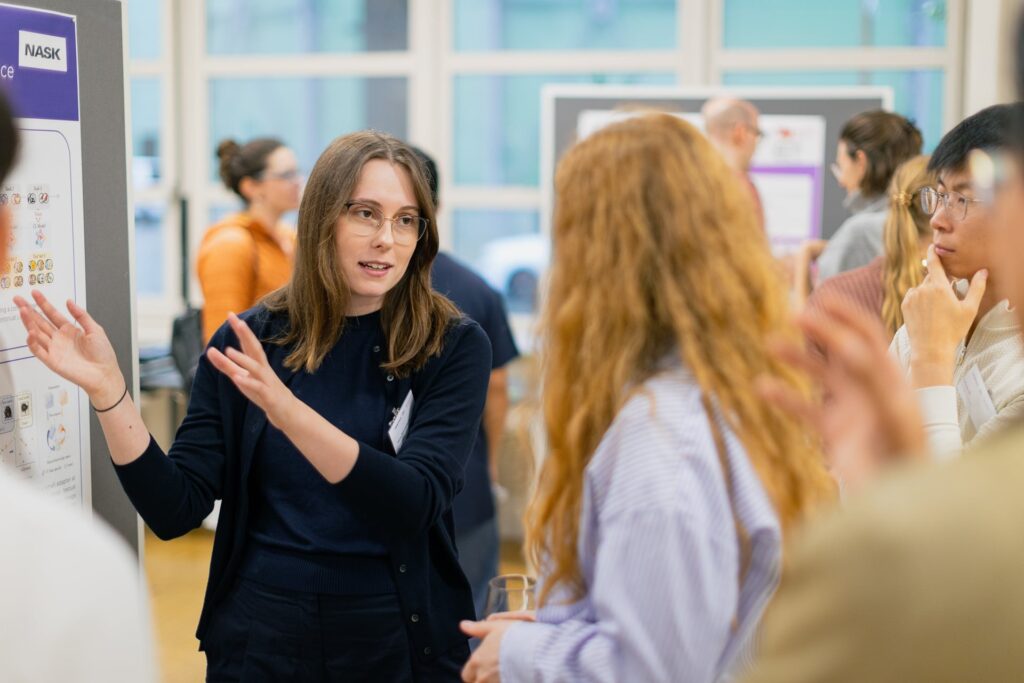Dr Angela Holzer from the German Research Foundation (DFG) posed a provocative question in her talk: “Is Open Science still relevant?”—sparking a lively debate about institutional practices, incentives, and the real-world barriers to transparency.
Other speakers included Professor Sonja Schimmler (TU Berlin & Fraunhofer FOKUS) on cooperative data cultures, Dr Katrin Frisch (Ombuds Committee for Research Integrity in Germany) on maintaining integrity when using AI in research, and Professor Sören Auer (TIB Leibniz Information Centre for Science and Technology) on the role of neuro-symbolic AI in advancing Open Science.
Hands-on learning and shared perspectives
In hands-on sessions, participants experimented with tools for data sharing, anonymization, and reproducibility, while parallel in-depth lectures offered room to dive into specific subtopics across computer science, ethics, and data management.
For many participants, the combination of perspectives, and the collaborative spirit between institutions, was a defining feature of the event.
“The Summer School was very well organized, and it was clear that a lot of effort went into selecting the right lecturers for the main theme,” said Łukasz Sztukiewicz (TU Berlin / Poznań University of Technology). “It was also a great chance to network with the Berlin AI community and meet PhD students from BIFOLD, SCIoI, and HU, as well as postdocs. I definitely recommend it!”
Saloni Kothari (FU Berlin) agreed: “Attending the Summer School was an extremely enriching experience—the interactive sessions, exchanging ideas with a fun and diverse group, asking new kinds of questions, and even seeing behind-the-scenes work at the museum. I could not have asked for a more energetic environment!”
For Paria Shariati (HNE Eberswalde), accessibility and inclusion stood out: “The program offered a wide range of perspectives on open science and AI through lectures and workshops, and I learned a lot from the different aspects covered. I also use a wheelchair, and the organizers made sure everything was accessible, which made me feel very comfortable and included.”
